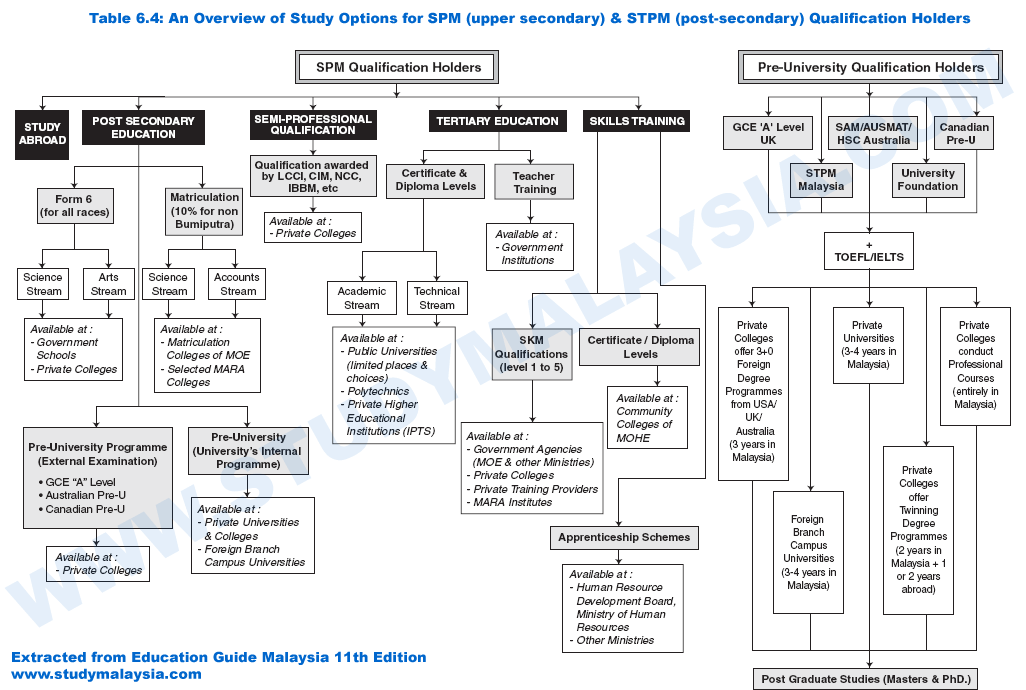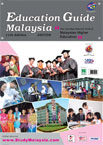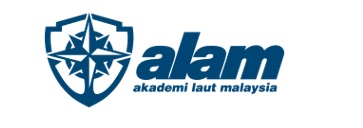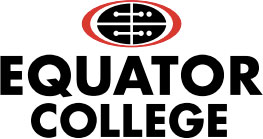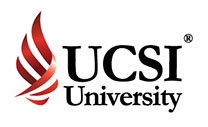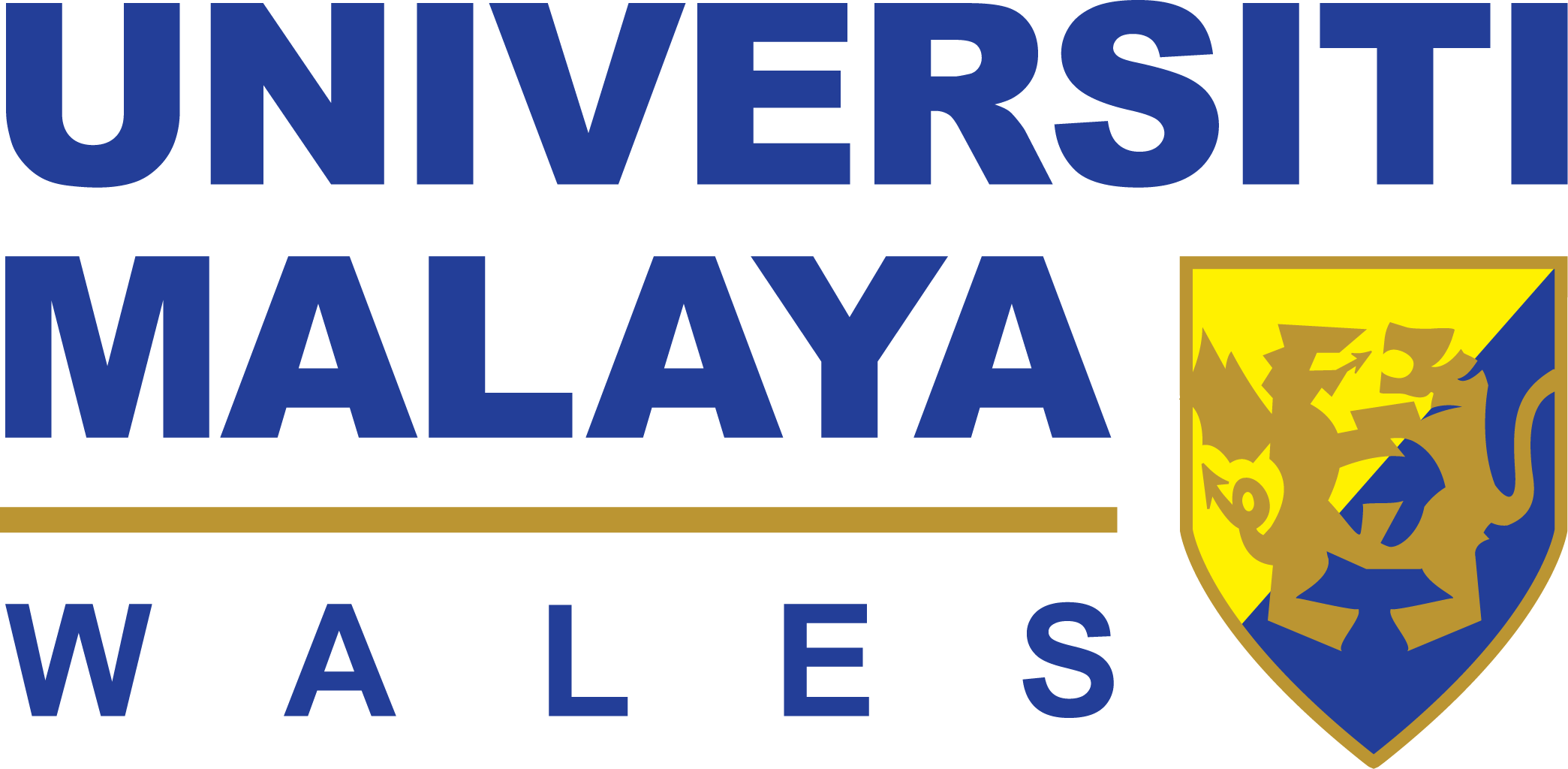
Introduction
Private Higher Educational Institutions (PHEIs) or better known as Institut Pengajian Tinggi Swasta (IPTS) in Malaysia have been playing a role as important as government-funded universities, that is, public universities, in the provision of tertiary education in Malaysia since the early 1980s.
Private higher educational institutions are non-government aided and fully-funded by the private sector. Some are also listed on the Bursa Malaysia (formerly known as Kuala Lumpur Stock Exchange, KLSE). These institutions of higher learning are under the jurisdiction of the Ministry of Higher Education [MOHE] (Kementerian Pengajiian Tinggi Malaysia) and are stringently governed by various legislations to ensure provision of quality education, such as:
- The Private Higher Education Institutions Act 1996
- The National Council of Higher Education Act 1996
- The Malaysian Qualifications Agency Act 2007 (replaced National Accreditation Board Act 1996)
- National Higher Education Fund Corporation Act, 1997 (Amendment 2000)
In support of Malaysia’s aim to be the centre of educational excellence in the Asia-Pacific region, the majority of PHEIs use English as the medium of instruction for programmes conducted. Besides offering education opportunities to General Information on Malaysian Higher Educations, PHEIs are also the favoured choice of many international students. In June 2007, there were 521 PHEIs approved by the Ministry of Higher Education Malaysia and are categorised as below:
| Table 6.1: No. of PHEIs as at 30 June 2007 | |
|---|---|
| Categories of PHEIs | Number |
| University Status | 16 |
| University College Status | 16 |
| Foreign University Branch Campus | 4 |
| Non-university Status | 485 |
| Total | 521 |
Source: IPTS Management Sector, MOHE
 The four foreign university branch campuses offer internationally-recognised
foreign degree qualifications whilst the 32 private
universities offer home-grown degree programmes and 3+0 foreign university
degree programmes. There are some 30 non-university
status PHEIs (i.e. private colleges) that conduct 3+0 foreign university degree
programmes in collaboration with overseas host
universities, besides awarding their own certificate and diploma levels
qualifications to students.
The four foreign university branch campuses offer internationally-recognised
foreign degree qualifications whilst the 32 private
universities offer home-grown degree programmes and 3+0 foreign university
degree programmes. There are some 30 non-university
status PHEIs (i.e. private colleges) that conduct 3+0 foreign university degree
programmes in collaboration with overseas host
universities, besides awarding their own certificate and diploma levels
qualifications to students.
Many of these PHEIs also have twinning degree arrangements with reputable foreign universities all over the world. At the beginning of 2007, there were more than 320,000 students studying in PHEIs and about 35,000 (approximately 10% of the total) were international students pursuing tertiary programmes and English language courses.
Malaysia’s private higher education is unique and renowned because it offers students a wide variety of study options and a choice of both local and foreign university qualifications of international standing to suit individual preferences.
About PHEIs
Approval Requirements
Private higher educational institutions (PHEIs) which offer tertiary education must be approved by the Ministry of Higher Education (http://jpt.mohe.gov.my) as required by Malaysian laws.
In addition to obtaining the approval to operate, the courses offered by PHEIs need to be endorsed by the national quality assurance agency i.e. the Malaysian Qualifications Agency (MQA). Without the endorsement of MQA, any qualification awarded to students by PHEIs is considered a breach of Malaysian education law and the provider can be charged. Therefore, it is advisable for students to check with the institution concerned whether the intended course of study is endorsed by MQA.
An important point to note is that not all PHEIs in Malaysia, although approved by the Ministry of Higher Education as education providers, are allowed to enrol International Students. In order to do so, PHEIs require an additional licence or approval from the Ministry of Home Affairs Malaysia (Immigration Department).
Categories of PHEIs
PHEIs consist of the following categories:- Non-university status institutions, i.e.
- Private colleges
- Private institutions
- University status institutions, i.e.
- Private universities
- Private university colleges
- Foreign university branch campuses
Types of Qualifications Awarded
PHEIs conduct a wide range of courses and award qualifications ranging from Certificate, Diploma to Degree qualifications:- Private Colleges
- Pre-university programmes (internal and external qualifications)
- Internal or self-designed certificate and diploma qualifications
- Foreign university degree programmes in collaboration with partner-universities
- External professional and semi-professional examinations - Private Universities and University Colleges
- University foundation courses
- Internal diploma and degree qualifications as well as foreign university degrees programmes in collaboration with partner universities - Branch Campuses of Foreign Universities
- Degree qualifications identical to that of the foreign university PHEIs play a significant role in fulfilling the needs of tertiary education for many local and International Students. The courses offered are open to Malaysian and International Students that possess SPM / Senior Middle III / STPM / GCE O Levels / STPM / GCE A-Levels or other equivalent foreign qualifications. Students can also select either the conventional full-time or part-time study or the distance learning mode in obtaining their qualification at reasonable costs.

Academic Qualifications Required in Gaining Admission into PHEIs
PHEIs will require some basic academic qualifications from applicants before considering their applications for the respective study programmes. The general entry requirement to pursue Diploma programmes is SPM or GCSE O Level with a minimum of 3 credits, whereas students with STPM qualifications or its equivalent such as GCE A Levels, University Foundation Programme, SAM, and CPU are allowed to enter Year 1 of an undergraduate programme.
| Table 6.2 General Entry Requirements for Pre-University / Diploma / Degree Programmes | |
|---|---|
| Education Level | General Entry Requirement |
| University Foundation Programme | SPM/GCE O Level with 5 credits, or its equivalent |
| Certificate Level | SPM/ GCE O Level with 1 credit, or its equivalent |
| Diploma Level | SPM/ GCE O Level with 3 credits, or its equivalent |
| Year 1 of Bachelor’s Degree | STPM /GCE A Level + English Proficiency or its equivalent |
English Proficiency Requirement
Proficiency in the English language is another requirement by PHEIs. Students
are expected to have adequate knowledge and understanding of English, as this is
the language of instruction at the private colleges and universities. Various
international examinations such as GCE 1119, MUET (Malaysia University English
Test), TOEFL and IELTS are generally accepted for Bachelor’s degree programmes.
| Table 6.3 depicts the accepted English Proficiency Standard for admission into PHEIs | |
|---|---|
| English Proficiency Test | Accepted Scores for First Degree Programmes |
| TOEFL | 173 to 250 on a new computer administered test (equivalent to a score of 500 to 600 on the old paper-based test format) |
| IELTS | 6.0 to 7.0 |
| MUET | Band 3 to 6 |
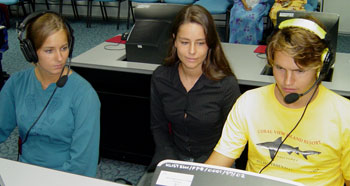 Application Procedures
Application Procedures
Students with SPM / Senior Middle III / STPM / GCE ‘O’ Levels / GCE ‘A’ Levels
or other equivalent qualifications must APPLY DIRECTLY to the institutions
concerned. Unlike the enrolment into public universities at the diploma and
Bachelor’s degree levels, there is no centralised enrolment agency that governs
the intake of students into private institutions. However, students are advised
to check with the the governing authority of private higher education i.e.
Sector of Private Higher Education Management of MOHE as to whether the
prospective institution is authorised or approved by the Ministry. PHEIs’
programmes are offered to different levels of students and will lead to the
award of a Certificate, Diploma or Degree qualification. There are also a number
of PHEIs that conduct postgraduate degrees at Master’s and PhD levels.
For any online enquiry on education opportunities in Malaysia, students can log onto the HELP DESK of www.StudyMalaysia.com.
Education Levels under newly established MQA
Under the newly-established Malaysian Qualifications Agency (MQA), the
levels of education in the higher education system detailed in the Malaysian
Qualification Framework (MQF) include:
- Levels 1 to 3 - These include Skill Certificates awarded by skill training institutes, Vocational and Technical Certificates awarded by Community Colleges and Polytechnics as well as Certificates (Level 3 only) awarded by the Higher Education Sector.
- Levels 4 and 5 - These include Diplomas and Advanced Diplomas (General Degree) respectively, awarded by the Technical and Vocational Sector, the Skills Sector and the Higher Education Sector.
- Level 6 to 8 - Level 6 is for the first tertiary qualification, i.e. the Bachelor’s Degree with Honours while Level 7 is for Master’s Degrees and Level 8 for PhD / doctoraldegrees. Under the lifelong learning category, there are graduate certificates and diplomas as well as postgraduate certificates and diplomas.
Pathways To Tertiary Education
Factors to Consider When Choosing a Course
When choosing the route to acquiring a qualification, there are a few factors which are interdependent, and these are:- the qualification that suits your education level
- the area of study or specialisation that suits your interest
- the choice of qualification awarded, whether academic, professional or technical
- whether to study at a private college, private university or foreign university branch campus – all of which offer various options for students
- your budget, and
- choice of completing part of the programme overseas
Pathways for Upper and Post-secondary School Leavers at IPTS & IPTA
For School Leavers with SPM Qualification
After successfully completing 11 years of free education (six years in
primary school and five years in secondary school), SPM-level school leavers
have many opportunities to further their full-time studies in the country.
The study options include:
- Pre-university/post-secondary programmes
- Form 6 (STPM) or the Matriculation Certificate Programme of the Ministry of Education Malaysia (MOE)
- Form 6 is available at Government post-secondary schools and some private colleges while the Matriculation programmes are available at the Ministry’s Matriculation Colleges and some MARA colleges - The U.K. GCE ‘A’ Level Programme; Australian and Canadian
Pre-University Programmes;
- available at private colleges - Pre-University or University Foundation Programmes
- available at IPTS and some IPTA - Others
- Form 6 (STPM) or the Matriculation Certificate Programme of the Ministry of Education Malaysia (MOE)
- Tertiary Education (Certicate/Diploma Level) or Skill Qualifications
- Diploma Programmes at public universities (IPTA);
- Certificate/Diploma Programmes at Polytechnics (IPTA);
- Certificate Programmes at Community Colleges (IPTA);
- Skills Training Programmes at Skill Training Institutes leading to the award of Malaysian Skills Certificate Level 1-5 (Sijil Kemahiran Malaysia, SKM) qualifications
- Diploma in Teaching at Teacher Training Institutes;
- Industry Apprenticeship schemes by Pembangunan Sumber Manusia Bhd and the Ministry of Youth & Sports;
- Certificate/Diploma/LCCI/CIM/CAT/HND/External Examination Bodies qualification programmes at private colleges
- Others
For School Leavers with STPM Qualification
As for students with STPM or other post-secondary qualifications (such as
STAM and Matriculation qualifications), whether from the Arts or Science
stream, the tertiary education pathway will include:
- Diploma level programmes at private higher educational institutions (IPTS)
- Semi-professional qualification programmes such as CIM, CAT, etc. at IPTS
- Year 1 Bachelor’s Degree programmes at public universities or IPTS
- Professional Qualifications such as LL.B, ACCA, CIMA, etc. at IPTS
Table 6.4: An Overview of Study Options for SPM (upper secondary) & STPM (post-secondary) Qualification Holders
Note: IPTS means private higher educational institutions IPTA means public universities, polytechnics and community colleges MOE means Ministry of Education Malaysia













